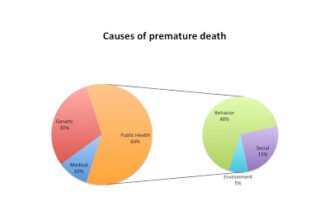The wild attacks on Social Security by Republican presidential candidates including Rick Perry’s famous characterization of the program as “a Ponzi scheme” are amusing, but are a serious distraction from the real fiscal issues facing the country.
The wild attacks on Social Security by Republican presidential candidates including Rick Perry’s famous characterization of the program as “a Ponzi scheme” are amusing, but are a serious distraction from the real fiscal issues facing the country. Rather than attacking a fundamentally sound 75 year old program with a specified revenue stream, it would be a lot more honest to admit that a Republican Congress and President were responsible for a much more recent and reckless expansion of Federal spending in the form of the Medicare Part D drug benefit.
As explained by the North American Securities Administrators Association:
“The Ponzi scam amounts to little more than robbing an army of Peters to pay a handful of Pauls. As the number of initial investors (the Pauls) grows and the supply of potential new investors (the Peters) dwindles, the Ponzi bubble bursts under the pressure of meeting the promised returns. While some initial payments are made to drum up new recruits, the vast majority of investors in a Ponzi scheme end up losing all or most of their money. As in the case of simple pyramid recruitment frauds, a point is inevitably reached where the con man simply cannot keep up with the required payments.”
So Social Security is not a Ponzi scheme at all. It doesn’t promise amazing, rapidly compounding returns on investment. It doesn’t depend on drumming up new investors. Instead, it’s a pay as you go system that mainly taxes today’s workers to pay today’s retirees (that’s where 82 percent of funding comes from). If nothing’s done to rejigger the system, Social Security can still pay out 75 percent of what’s expected even once the so-called “trust fund” is extinguished. Modest adjustments have been made in the past and can be done again: some combination of raising the retirement age, increasing the maximum income on which Social Security taxes are levied, and adjusting benefit levels are enough to keep the program solvent essentially forever. Becoming more open to immigration would also improve the prospects for Social Security by bringing in younger workers. But trying telling that to the Republican candidates!
What about the Medicare Part D drug benefit? Unlike Social Security, there is no dedicated funding stream at all for this $62 billion per year program. And when it was passed there was no provision to make it revenue neutral; the cost went straight to the deficit. Today 83 percent of Part D is funded through “general revenues,” 11 percent through beneficiary premiums and six percent through state payments. Part D is not a Ponzi scheme, but it’s a redistribution of wealth from taxpayers as a whole to senior citizens and pharmaceutical companies.
I’d like to hear the candidates explain why Part D should stay and Social Security should go. Personally, I can’t see the logic of it.





